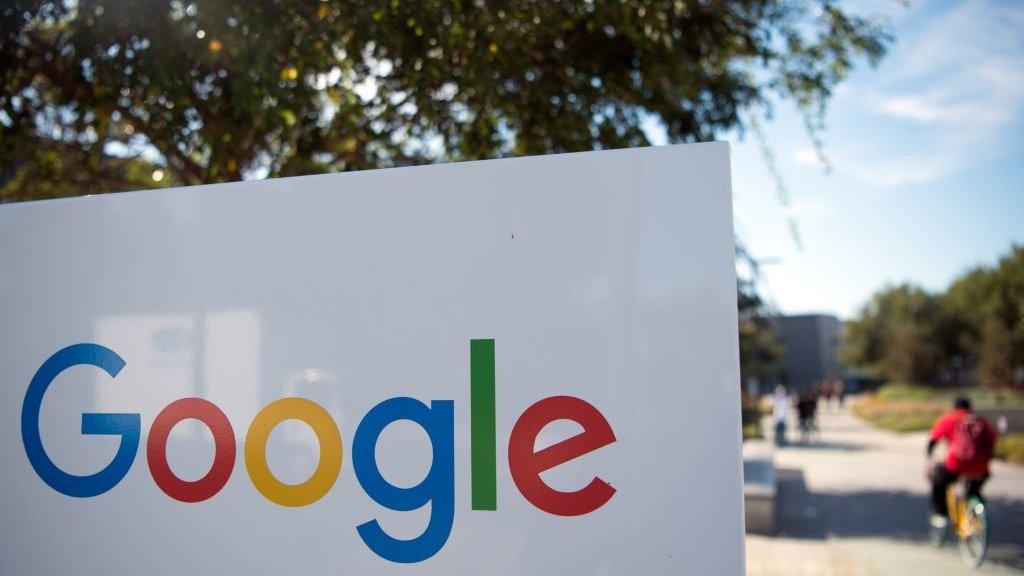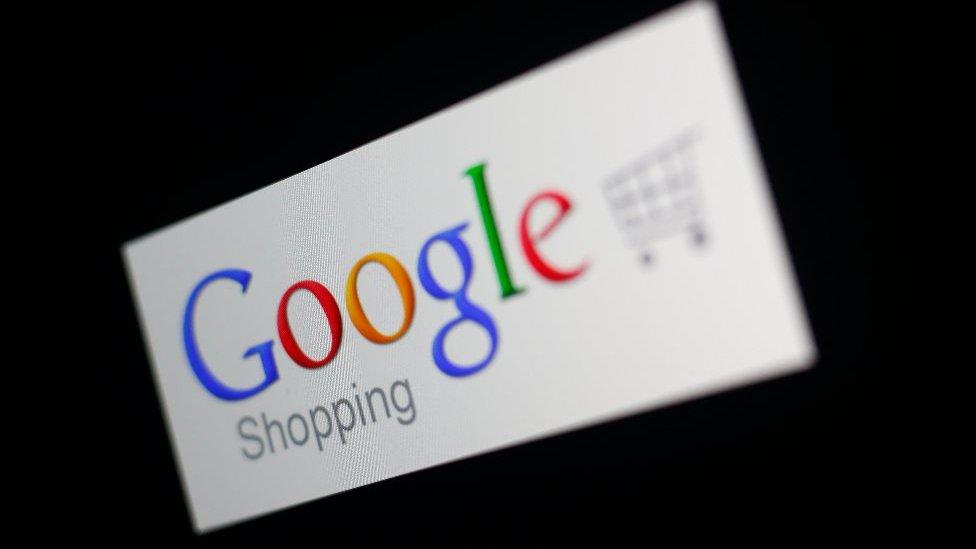Alphabet profits rocked by EU fine
- Published

Profits at Alphabet, the parent company of search giant Google, have been hit by the record fine imposed by the European Commission last month.
The firm said it saw strong growth in the second quarter, with revenues of about $26bn (£19bn), up 21% compared to the same period in 2016.
But profits for the three months to the end of June were $3.5bn, more than 40% lower than they would have been without the fine.
Year-on-year profits fell almost 30%.
Google was fined 2.42bn euros ($2.7bn; £2.1bn) by the European Commission last month after it ruled the company had abused its power by promoting its own shopping comparison service at the top of search results.
The amount was the regulator's largest penalty to date against a company accused of distorting the market.
Alphabet has already said it may challenge the fine.

Google faces further penalties if it does not change the way Google Shopping ads are displayed within three months

Analysis by Dave Lee, North America technology reporter:
Naturally, this quarter's earnings tell a very skewed picture of the health of Alphabet. It's been a terrific quarter which, were it not for that record breaking fine, would have exceeded expectations in almost every way.
Google is appealing against that fine, so we could find at some point in the future those "lost" billions are added back on, making for a particularly bountiful quarter somewhere down the line.
The company wants to keep an eye on its advertising business, however. The cost per click - i.e how much money Google makes with every ad click - has dropped by 23% year on year. That's much more than analysts had hoped.
It's a sign that Google is having to work harder to keep those incredible revenues coming in.
And if it is to comply with what it sees as overly strict European Commission measures, its ability to use its market power to dominate online advertising may be restricted. Just as well, then, that the non-advertising side of Alphabet is doing well too.

On Monday, chief financial officer Ruth Porat said the firm was reviewing the decision and working on ways to address the regulator's concerns. She refused to comment further on how it could affect the business, describing it as an ongoing legal matter.
"The main thing is we're very focused on helping users and advertisers and are reviewing our options," she said.
The tech giant's shares, which had risen ahead of the firm's publication of its earnings, fell more than 3% in after-hours trading. Some said that was a sign shareholders were cashing in.
'Strong growth'
Alphabet makes most of its money from advertising. It said revenues from advertisers on its own sites, such as YouTube and Gmail, and other sites together increased 18% year-on-year to $22.7bn.
YouTube, for example, now has about 1.5bn monthly viewers, who watch an average of 60 minutes a day, said Google chief executive Sundar Pichai.
The firm has also been working to diversify its revenue stream, investing in areas such as driverless cars, cloud services and life sciences that it says are united by the opportunities presented by machine learning.
Alphabet's other revenues - which include money from things such as app purchases and its cloud services - jumped more than 40% to about $3bn.
"We're delivering strong growth with great underlying momentum, while continuing to make focused investments in new revenue streams," Ms Porat said.